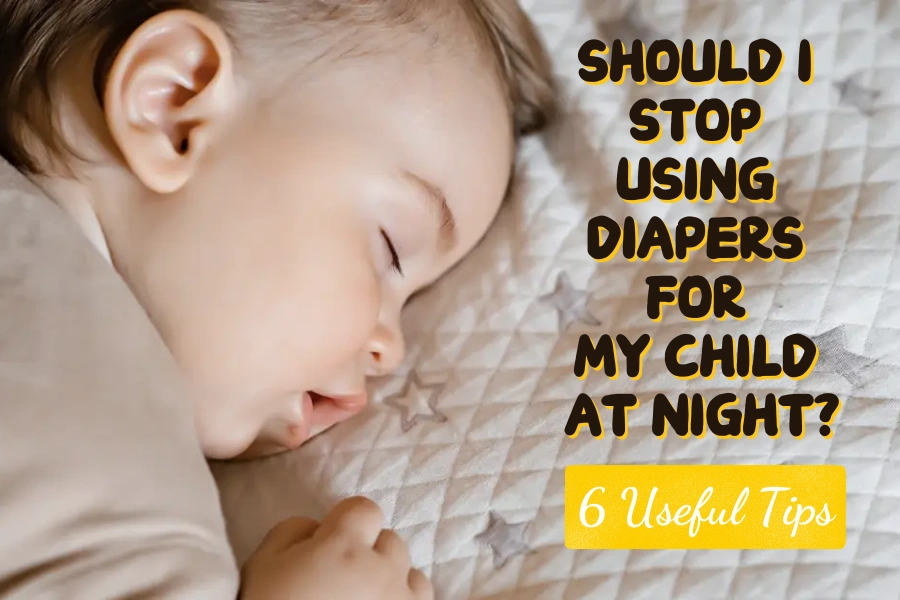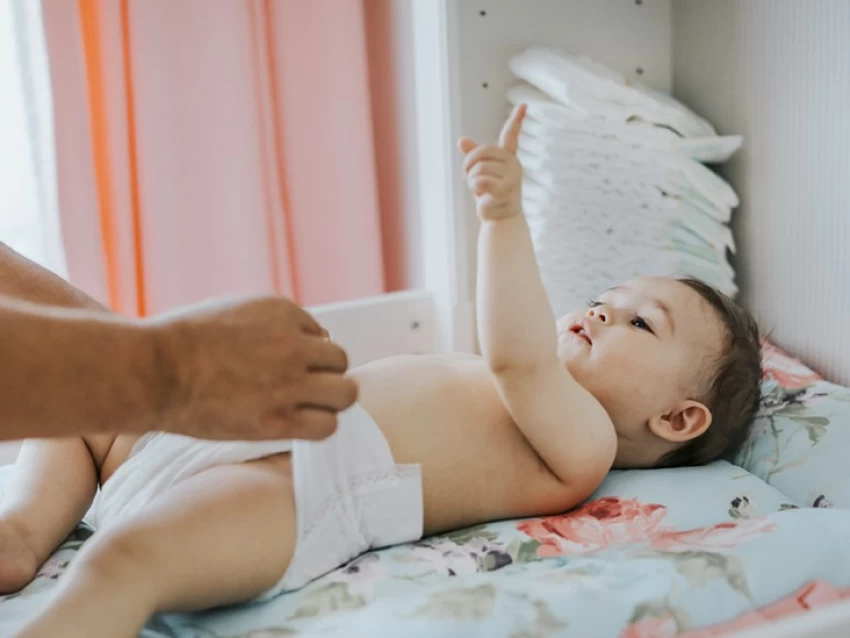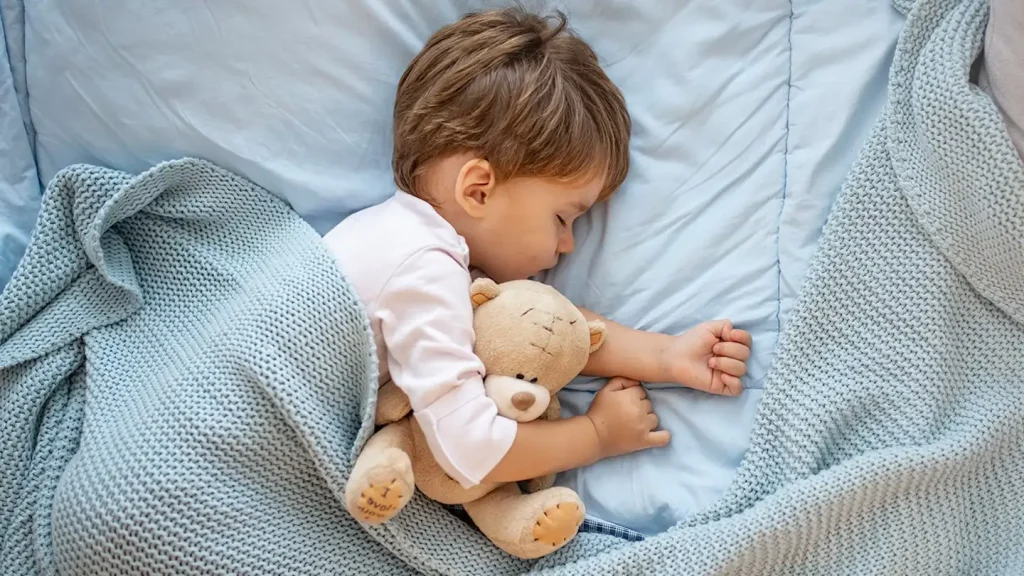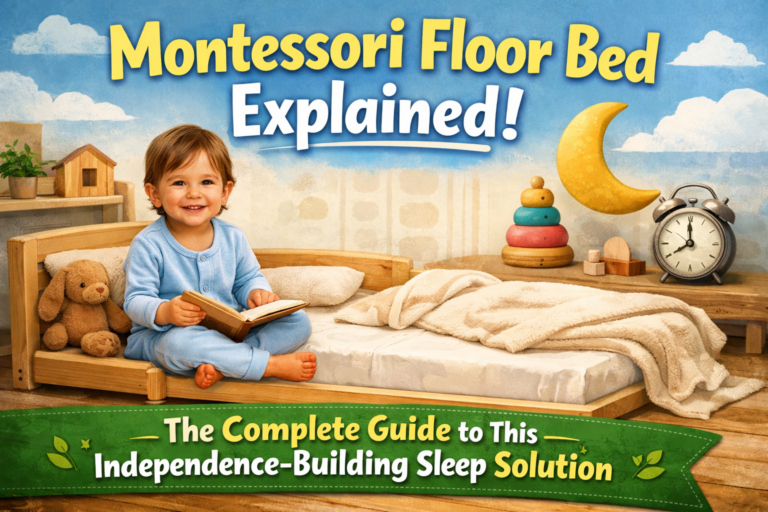
When the time is coming, your child will say goodbye to diapers at night. But when is the right time and how you can wean off those diapers are really questions. Each child has their own pace of development, and therefore the time frame may not be right for all. However, you can notice when you should stop wearing diapers for your child based on some signals revealed in this article.
“When should I stop using diapers for my child at night?” – In this tutorial, we’ll go over several important key signs to help you determine when it’s time to stop changing diapers at night. It also provides you with 6 useful and effective tips to help you transition more smoothly.
The Right Time Should I Stop Using Diapers For My Child at Night?
In fact, the right time to stop wearing diapers for a child depends on various factors. Your child will differ from another child, then the ready diaper-free time will differ as well. It’s very important to observe the child’s physical development and sleep patterns to know when to most likely make the transition successful.
At What Age Should I Stop Using Diapers For Children?
“When should I stop using diapers for my child”? Many parents wonder about this and ask themselves whether it is the right time or too soon. While most children often start showing signs of readiness between 18 months and 3 years, some may be ready a little late between 3-4 years of age, or even to 6. At this age, your child will be able to show remarkable improvement in controlling the bladder.
Just remember, most children do develop nighttime dryness later than daytime dryness, so don’t fret. It’s possible that the bladder control system of your child is still developing and needs some time to get full function 1. If your child isn’t ready by this age, that’s perfectly normal—some children may need a bit more time.
Signs Your Child Is Ready To Stop Using Diapers
Watch out for some of the most common signs that will give you an idea about readiness to stop wearing diapers at night. They include:
- Usually wake up with a dry diaper in the morning and after short naps in the afternoon.
- Hate the feeling of having a diaper on and want to go to the toilet.
- Stay dry during the day and be conscious of the use of the potty.
- Want to use the toilet when waking up at night
- Be able to express whenever they want to pee.
These are signs that will show your child is ready to have a go at not wearing nappies or diapers to bed.
Should I Stop Using Diapers: 6 Tips For Smooth Transition To Diaper-Free

Transitioning to diaper-free is not such as mess if you do it in the right way. Much of it has to do with preparation—preparing yourself and the child, too, for that matter. This is all about patience and understanding. Here are the 6 simple tips that will help you successfully make your child go dry without wearing diapers at night.
Empty Bladder Before Bedtime
Before bringing your child to bed, ask them to pee. This simple, non-painful habit lowers the possibility of having nighttime accidents and often helps the child wake up dry.
Avoid Waking Your Child Up at Midnight
Although it may sound helpful, waking a sleeping child up in the middle of the night to use the bathroom will interfere with his or her sleep and really isn’t necessary. Instead, work on developing a routine that lets your child stay dry on their own.
Regular Drinking Habit
Encourage your child to drink water more during the day, but limit it in the evening, especially an hour before bedtime. This will help them stay hydrated without overloading their bladder at night.
Don’t Let Your Child Eat Too Salty Foods
Children eating salty foods can increase thirst and, hence, drinking, leading to a full bladder at night. Limiting salty snacks in the evening is a small but very effective tip to prevent your kids from going to pee at night.
Prepare A Potty Next To The Bed
Having a potty close to your child’s bed is a great idea. The kids usually find it difficult to wake up and travel to the restroom for pee. The path may be too far and dark, which will disappoint them from trying. It will therefore be much simpler for your child to say goodbye to diapers if there is a potty next to the bed.
Patience Is Key
No baby will be the same when it comes to adjusting to a life without diapers. There are going to be steps backward and mess, but patience and positive reinforcement will give your child confidence and hence the success of transition. So at each small triumph, do remember to rejoice and encourage your kids.
Tips To Prepare Bed For a Peaceful Bedtime

One thing that is also very important is good preparation for your kid’s bed. This will make sure you can solve all the accidents easily and conveniently. You will want to follow these practical tips to ensure a peaceful and restful night’s sleep for your baby:
Waterproof Bedsheet
Purchasing a waterproof protector or bedsheet is an easy yet efficient method of keeping the mattress dry all night. The secret tip is to double the layer. If your child pees on the bed, you just need to take out the dirty one and still have a clean layer underneath. It adds an extra layer of security and makes clean-up much easier for you.
Easy Clothes For Changing
Before bedtime, you need to dress your kid in easy-to-change clothes. Some kinds of clothes like pajamas with zippers or loose-fitting bottoms will be a great choice. This will allow you to be able to change clothes quickly and easily without disrupting your kid’s sleep.
In Closing
“Should I Stop Using Diapers For My Child At Night?” – The hints left by your youngster can serve as guidance. Remember do not push them or get angry with them when they make the bedsheet wet at night. It’s a procedure that calls for patience and time. Try the transition only when your kid feels comfortable. Just follow those tips and you will have a stress-free and smooth transition to no-diaper.
Source
- Definition & Facts for Bladder Control Problems & Bedwetting in Children. (2022, August 29). National Institute of Diabetes and Digestive and Kidney Diseases. https://www.niddk.nih.gov/health-information/urologic-diseases/bladder-control-problems-bedwetting-children/definition-facts ↩︎






